Finding the perfect canine companion is an exciting journey, but for many, the thought of constantly cleaning up dog hair can be a significant deterrent. If you’re dreaming of a small dog that brings joy without the shedding hassle, you’re in luck! The world of dog breeds offers a wonderful variety of small companions that shed minimally or not at all, making them ideal for allergy sufferers and those who simply prefer a cleaner home. This guide delves into some of the most beloved dog breeds that stay small and don’t shed, helping you discover the perfect furry friend to fit your lifestyle.
Exploring small to medium sized dogs that don t shed can open up a world of possibilities for dog lovers who want to minimize shedding. These breeds are not only manageable in size but also require less grooming effort related to fur cleanup.
Discovering Small, Low-Shedding Dog Breeds
When considering small dog breeds that don’t shed much, it’s important to understand that “non-shedding” often refers to breeds with hair that grows continuously, much like human hair, rather than fur that sheds seasonally. These breeds still require regular grooming to prevent matting and keep their coats healthy.
Affenpinscher: The “Monkey-like Terrier”
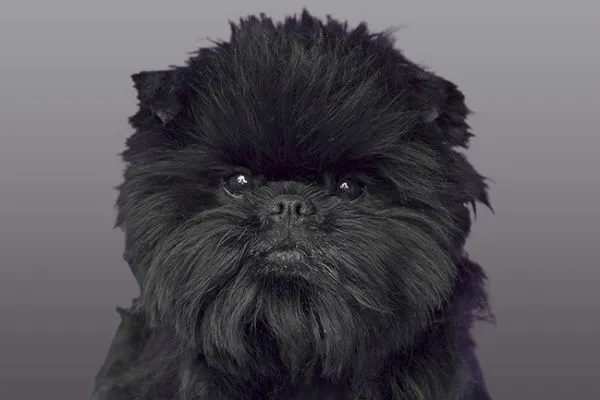 Affenpinscher
Affenpinscher
The Affenpinscher, meaning “monkey-like terrier,” lives up to its name with its intelligent and distinctive appearance. These small, fearless dogs are excellent watchdogs and a great choice for households wanting minimal shedding. Their wiry coat sheds very little and is known for having almost no doggy odor. A twice-weekly brushing with a slicker brush and comb is usually sufficient to maintain their unique look. Known for their sense of humor, Affenpinschers are a delightful and low-maintenance companion.
Basenji: The “Barkless” Dog
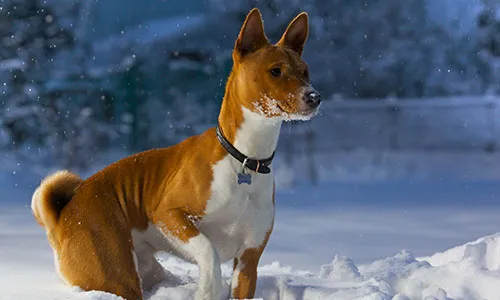 Basenji
Basenji
For those who love the spirit of hounds but dislike excessive shedding and odor, the Basenji might be your ideal match. This breed sheds minimally, and its short, fine coat requires little more than occasional brushing. Basenjis are also famously quiet, making them well-suited for apartment living, provided they receive adequate daily exercise and playtime. Their unique vocalizations, more akin to yodels, are a distinctive trait.
Bichon Frise: The Allergy-Friendly Charmer
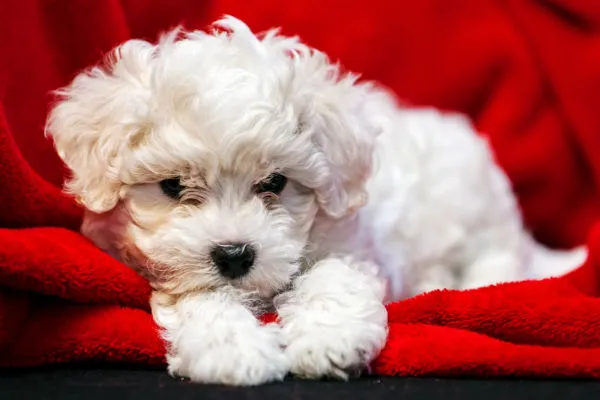 Bichon Frise
Bichon Frise
The Bichon Frise is a truly non-shedding small dog breed, making them a top contender for individuals with allergies. These playful and affectionate dogs are known for their cheerful disposition. However, their continuously growing hair requires frequent grooming, regular brushing, and occasional baths to maintain their signature fluffy, “powder-puff” appearance.
Bolognese: A Fluffy, Non-Shedding Companion
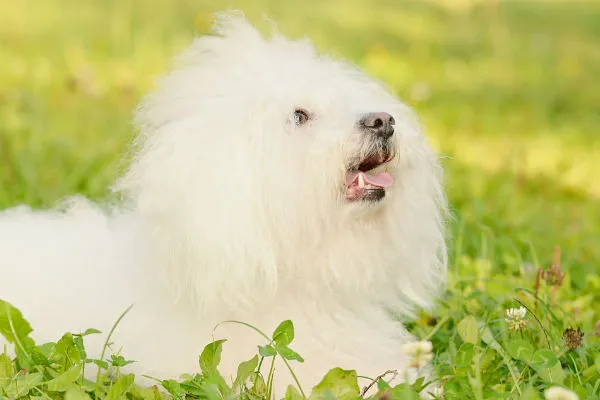 Bolognese
Bolognese
Similar to the Bichon Frise, the Bolognese boasts a distinctive fluffy coat composed of hair rather than fur. This breed does not shed, though dead hair needs to be brushed out regularly. Their coat demands daily grooming to keep these lovable lap dogs looking their absolute best.
Brussels Griffon: A Spirited and Low-Shedding Breed
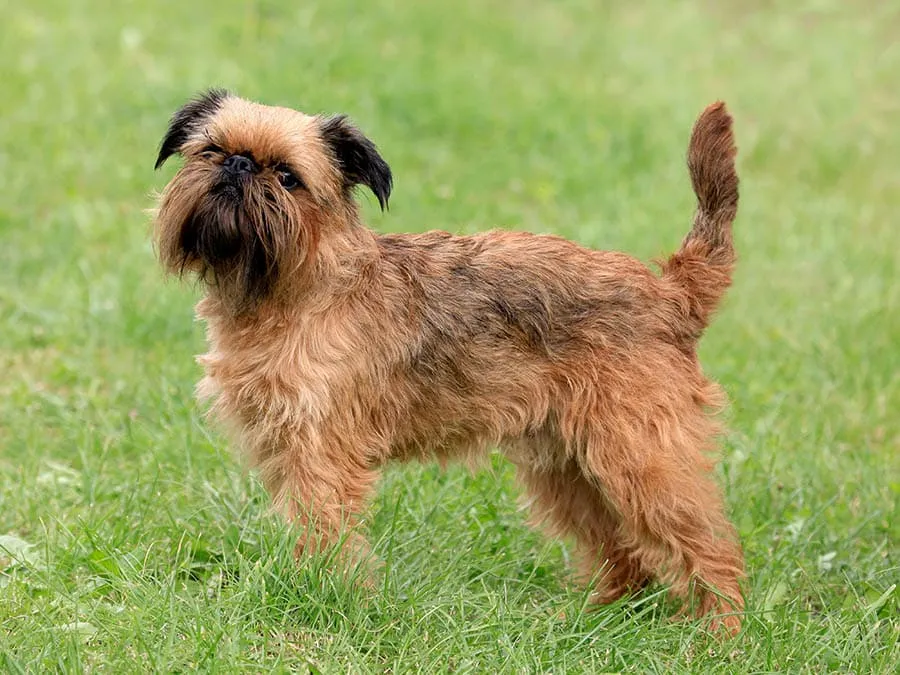 Brussels Griffon
Brussels Griffon
Despite their small stature, Brussels Griffons are not delicate dogs and do not require excessive pampering. Both smooth-coated and rough-coated varieties are minimal shedders and thrive with regular grooming. Their exercise needs are easily met with a daily walk and indoor play. This loyal breed forms strong bonds with their families and does best when their people are home frequently.
Chinese Crested: The Hairless Wonder and Its Powderpuff Cousin
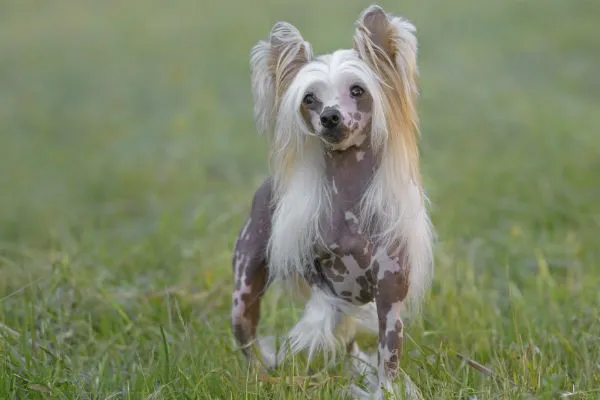 Chinese Crested
Chinese Crested
One of the most direct ways to avoid shedding is by choosing a hairless breed. The Chinese Crested comes in two coat types: hairless and powderpuff. The hairless variety has hair only on its head, tail, and feet. The powderpuff is covered in a fine, soft coat that sheds minimally. Hairless Chinese Crested dogs require extra skin care, including protection from the sun and cold, as they are more prone to skin irritations.
Coton de Tulear: The Hypoallergenic Cotton Ball
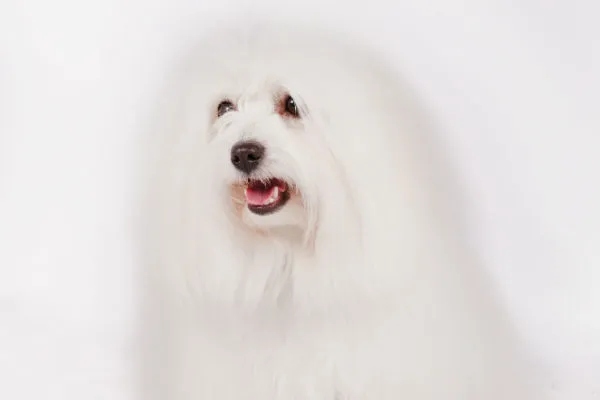 Coton de Tulear
Coton de Tulear
The Coton de Tulear is known for its distinctive, long, fluffy coat, often considered hypoallergenic. This makes them an excellent choice for allergy sufferers and those seeking a small dog that doesn’t shed profusely. While they do require daily grooming to maintain their beautiful coats, their lighthearted and gentle nature makes the grooming effort truly worthwhile.
Havanese: Cuban Charm with Minimal Shedding
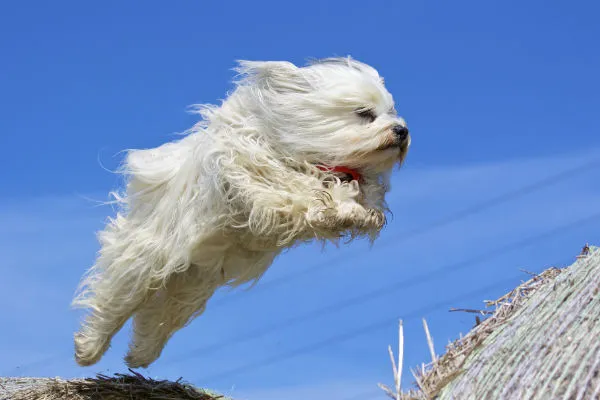 Havanese
Havanese
These native Cuban dogs possess a patented spunky charm and a coat that doesn’t shed much. This means less time spent de-linting furniture and more time enjoying playful romps with your Havanese. Their coat requires weekly brushing and regular baths to keep them clean and healthy.
Maltese: Ancient Elegance, Minimal Shedding
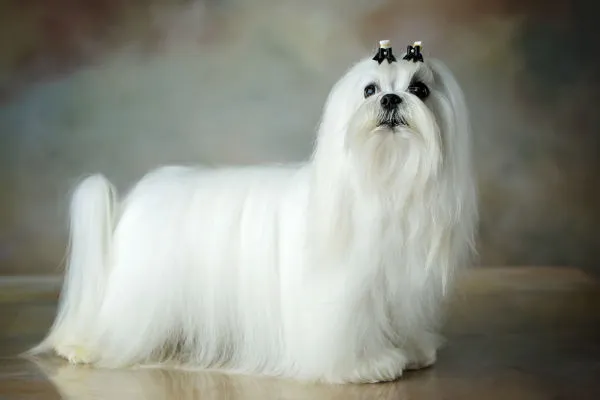 Maltese
Maltese
The Maltese breed has been charming humans for millennia. Their long, white coats shed very little, making them an ideal lap dog. However, their coats do require regular brushing to prevent mats from forming, and occasional baths are necessary to keep their long, silky hair clean.
Lhasa Apso: A Regal Companion That Doesn’t Shed
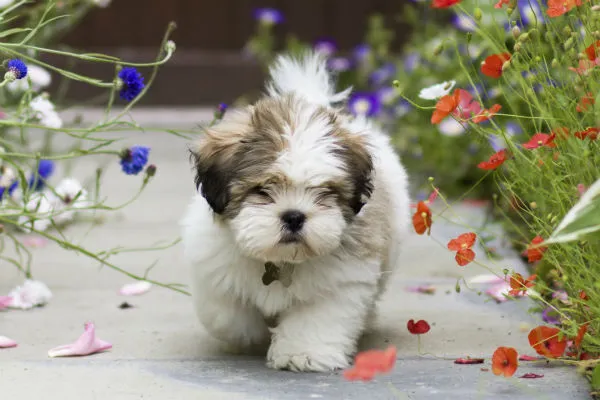 Lhasa Apso
Lhasa Apso
Originating from Tibet, the Lhasa Apso makes an excellent companion. This calm yet playful breed enjoys brisk walks and relaxing on their owner’s lap. Lhasa Apsos don’t shed, but their coats do require maintenance. Many owners opt for a “puppy cut” to simplify grooming and avoid daily brushing of their long hair.
Miniature Schnauzer: A Cheerful, Low-Shedding Terrier
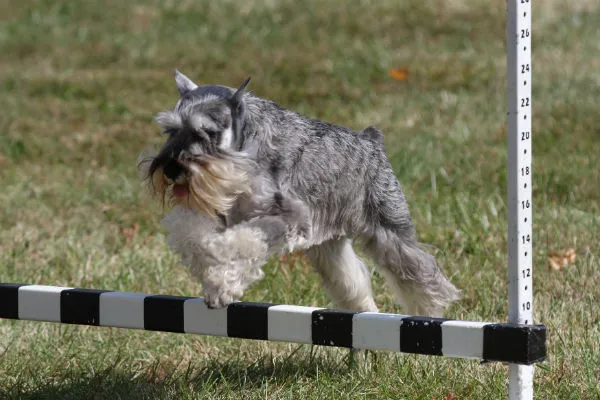 Miniature Schnauzer
Miniature Schnauzer
The Miniature Schnauzer is a smart, trainable, and cheerful small dog that closely resembles its Standard Schnauzer relative. This breed sheds very little, and their adaptability makes them comfortable in both urban and rural environments, as long as they are with their people. Weekly brushing and regular grooming are recommended to keep Miniature Schnauzers looking their best.
Poodle: The Classic Non-Shedding Breed
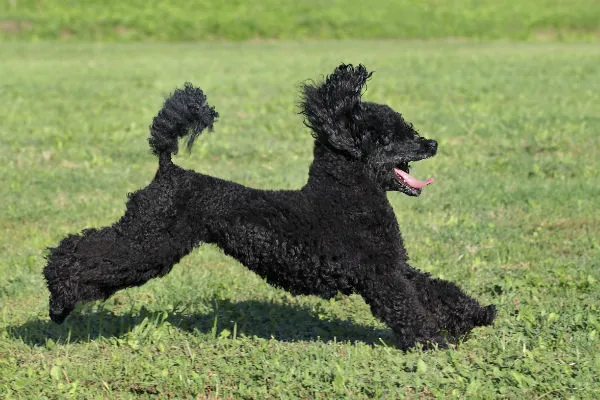 Poodle
Poodle
Poodles are perhaps the most well-known for being small dogs that don’t shed and are considered hypoallergenic. Miniature and Toy Poodles offer these desirable traits in intelligent, petite packages. All Poodles are highly intelligent, making them easy to train, and they are an active, proud breed. Their coat does require regular professional grooming.
Scottish Terrier: A Bold Companion with Low Shedding
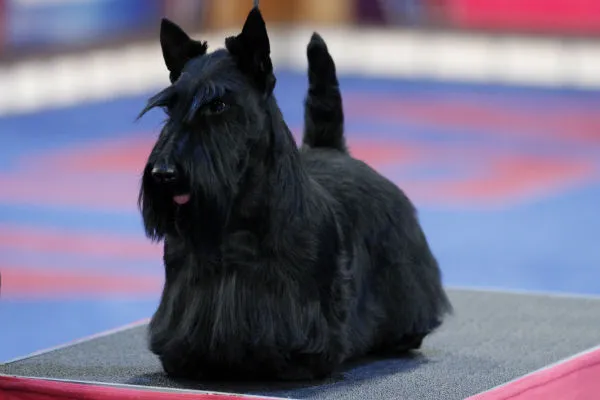 Scottish Terrier
Scottish Terrier
The Scottish Terrier, or Scottie, is a bold, confident breed with a big personality. Their wiry, weather-resistant coat sheds very little. Regular brushing, grooming, and occasional hand-stripping are necessary to maintain coat health and the breed’s distinctive outline. Scotties are clever and independent, with a strong prey drive, so owners must be mindful around smaller animals.
Shih Tzu: “Little Lion Dogs” with Minimal Shedding
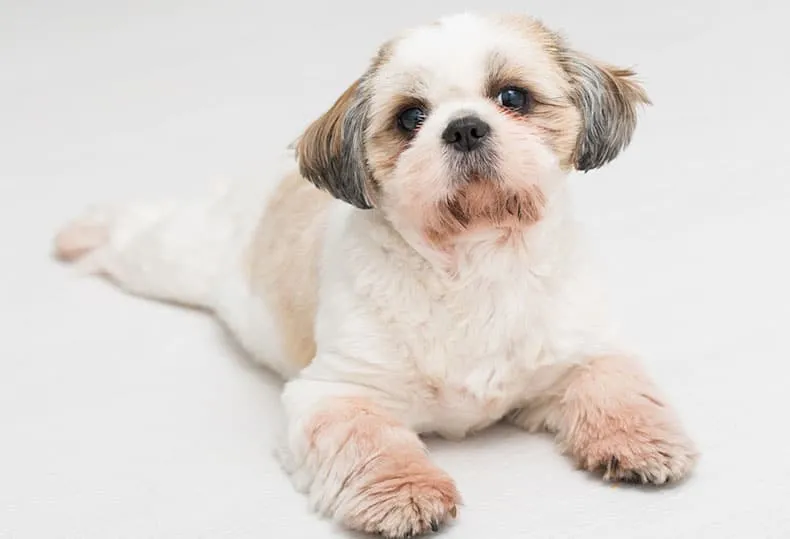 Shih Tzu
Shih Tzu
The Shih Tzu, a favored pet of royalty, boasts a long, silky coat that is very low-shedding. Their hair looks exceptionally regal when brushed out, fitting their noble ancestry. This sturdy and lively Toy breed carries themselves with a proud carriage, making them exceptional companions due to their gentle and trusting nature.
West Highland White Terrier: The Enthusiastic Westie
 West Highland White Terrier
West Highland White Terrier
The West Highland White Terrier, affectionately known as the Westie, has a coarse, white coat that sheds very little. These sturdy little dogs are intelligent, loyal, happy, and highly entertaining. They possess a curious nature and moderate energy levels, along with an independent streak common to Terriers, which can sometimes make training a bit of a challenge.
Xoloitzcuintli: The Ancient Mexican Hairless
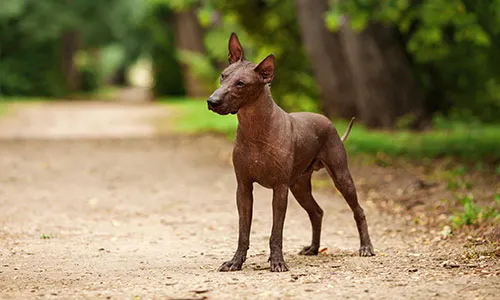 Xoloitzcuintli
Xoloitzcuintli
Also known as the Mexican Hairless, the Xoloitzcuintli is an ancient and rare breed that can be hairless or coated. The hairless variety has minimal hair on its head, while the coated variety has a very short, fine coat that sheds minimally. Like other hairless breeds, Xolos require extra attention to their skin for protection from the elements. They make attentive watchdogs and affectionate companions, known for their tranquil demeanor at home.
Yorkshire Terrier: A Spirited Lap Dog with No Shedding
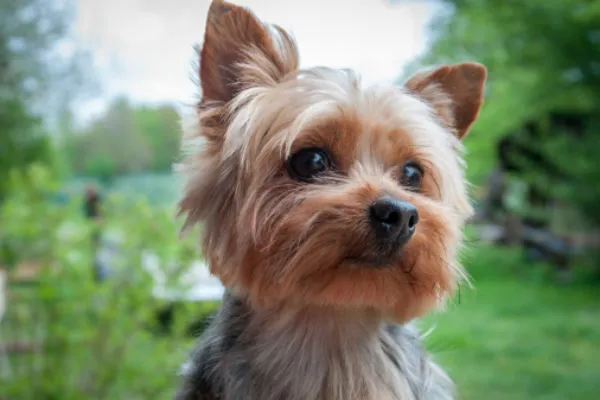 Yorkshire Terrier
Yorkshire Terrier
The Yorkshire Terrier, or Yorkie, is a spirited, affectionate Toy breed packed with personality. These spunky lap dogs are known for their silky coats that do not shed. Daily brushing is essential to keep their beautiful coats from matting. Despite their delicate appearance, Yorkies have working-class roots and were originally bred to hunt rats.
Considering Other Small to Medium Breed Dogs That Dont Shed
The Terrier group, in particular, is a rich source of small dogs that shed minimally or not at all. Breeds with wiry or coarse coats often shed less than those with softer fur, making them excellent choices for shedding-averse owners. Beyond the breeds mentioned, exploring cute dog breeds small don t shed can reveal even more delightful options.
When choosing from dogs that dont shed and stay small, remember that “non-shedding” doesn’t mean “no maintenance.” All dogs, especially those with continuously growing hair, require consistent grooming. Regular brushing, professional grooming, and proper bathing are essential for maintaining their health and appearance. Investing time in research and understanding the specific needs of each breed will help you find the dog that truly matches your lifestyle and personality.
For any prospective dog owner, it is paramount to purchase a dog from a reliable breeder, ensure your pet receives a high-quality diet, and schedule regular veterinary check-ups to prevent potential health problems. Finding a small fluffy dogs that don t shed companion can bring immense joy without the overwhelming task of constant hair cleanup.
References
- American Kennel Club (AKC) – Breed Information. (Accessed [Current Year]).
- Veterinary Medical Associations resources on dog care.
